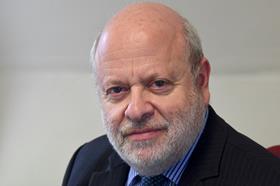The conjunction of the Covid inquiry with the fuss over Rwanda has put lawyers in an awkward spot. It has sharpened the discussion over our role in society, which has cropped up repeatedly in recent years. The overall criticism, which is not put in these exact words, is that we are guilty of exercising power without responsibility.

We do not see it this way. We see lawyers heroically performing the roles that society has allocated to us: to use probing questions to find the truth in the case of the Covid inquiry, and to assist the most vulnerable in asserting their rights in the case of migrants. I personally agree with this heroic role.
But we must consider that others see us differently. We must confront it or we will fail to understand what is being said, and so to know whether (and how) to respond.
Of course, to start with the Covid inquiry, it is a delight to see politicians and senior civil servants squirm under questioning. Such performances are a necessary part of democratic accountability. Like prime minister’s question time, they are a piece of theatre which provide a safety valve, and ensure that our leaders (and the public) are reminded that important decisions can be publicly challenged.
In prime minister’s question time, though, it is an elected politician who questions another elected politician, and each can remind the other of what they have done. It is a licensed boxing match between people with equal rights in that setting.
But the sight of a lawyer challenging a politician or senior civil servant outside a courtroom, where legal blame does not have to be allocated in a particular criminal or civil setting, raises a different response for some. Some do not view the lawyer well: unruffled, not having had to make difficult decisions, able to roam across the evidence to choose whatever is needed for a particular effect, a winner and to be paid regardless of the witness’s performance. It looks like the exercise of power without responsibility. (I should add, in case anyone thinks that I write out of sympathy for the witnesses, that they leave me cold.)
Now this context is not the lawyers’ fault. The inquiry was set up to be like this, and the lawyers are required to play their part. It could be that the inquiry should not have started with the politicians and senior civil servants, and that the role of the lawyers would have appeared differently after hearing other evidence first. It could be that some of the players and methods of a civil or criminal trial should not be used for a public inquiry – which are now a growth industry for lawyers. But that is again not the fault of the lawyers.
To turn to Rwanda, we are effectively being accused of the same thing in a very different setting. In some politicians’ eyes, whether we agree with them or not, the repeated appeals, the multiple challenges to the government, are undertaken by lawyers who do not have to struggle with a political problem, do not have to reconcile the human rights of the asylum seeker with the challenges to infrastructure, public spending and public opinion. In their eyes, lawyers earn money from these cases, clog up the courts, frustrate the elected government and get off scot-free. It is the same accusation of the exercise of power without responsibility.
Now there are many, many excellent responses to this: it is not for lawyers to decide broad ranges of public policy through decisions on which clients to represent, we have an accusatorial system where each side deserves a hearing, lawyers are merely using the existing law which has been established by this or previous governments, clients are exercising their legal rights, and so on.
But if we keep telling ourselves how right we are we will not hear what our critics are saying.
Of course we could respond in the manner of our prime minister and say: well, do you want us to withdraw from the Covid inquiry and let the chair take over the questioning, do you, do you? Do you want us to refuse to act for migrants and refugees, do you, do you?
(The prime minister’s actual response has been to try to cut us out of the migration appeals process more or less altogether, to declare day is night, and to bend the constitutional settlement so out of shape that it may break.)
But I don’t think we should respond like the prime minister. We should add this critique to the debate which is already taking place, despite the misgivings of many lawyers, about our role in modern society. It has so far been seen largely as concerning how a lawyer manages the conflict between the client’s interest and the public interest. Now the criticism is drawing closer and closer to the very role of a lawyer.
We don’t want to have changes imposed on us. Is the correct response to this current round a case of just communicating better what we do and why because everything is good as it is, or should we somehow change? Asking us to change is in many ways absurd because our role is embedded in an existing and complex system, and the system would have to change, too – but should it? Is any system even conceivable where our critic’s views could (or should) be accommodated?
Jonathan Goldsmith is Law Society Council member for EU & International, chair of the Law Society’s Policy & Regulatory Affairs Committee and a member of its board. All views expressed are personal and are not made in his capacity as a Law Society Council member, nor on behalf of the Law Society































8 Readers' comments